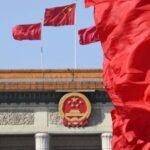By Our correspondent
Nigeria is entering a pivotal phase in its digital transformation journey, as the Nigerian Communications Commission
(NCC) rolls out landmark reforms designed to future-proof telecom regulation, expand broad- band access, and restore sanity to the increasingly critical Application-to-Person (A2P) messaging ecosystem.
At a high-level stakeholder forum held in Abuja, the NCC revealed that Nigeria’s teledensity had risen to 79.65%, with broadband penetration standing at 48.81% as of May 2025. These indicators not only reflect rapid digital adoption nationwide, but also highlight the urgent need for a regulatory environment that keeps pace with innovation.
“We are now at a turning point where the nature of innovation demands a regulatory paradigm that is not only responsive but enabling,” said Dr. Aminu Maida, NCC’s Executive Vice Chairman, represented at the event by Barrister Rimini Makama, Executive Commissioner for Stakeholder Management.
The General Authorisation Framework:
To align regulation with the pace of techno- logical change, the NCC introduced the General Authorisation Framework – a new licensing model designed to empower startups, enable experimentation, and ensure public interest is protected as digital services proliferate.
At the heart of the framework are three flexible
regulatory tools:
* Proof-of-Concept (PoC): For re- al-world testing of novel solutions before full- scale deployment.
* Regulatory Sandbox: A safe testing ground for disruptive ideas like Open RAN and spectrum sharing.
* Interim Service Authorisation: For temporarily licensing emerging services not covered under existing rules.
The draft framework, according to NCC’s Director of Licensing and Authorisation, Usman Mamman, was developed through cross-departmental collaboration and global benchmarking
– drawing lessons from regulatory best practices in the UK and Singapore.
“We studied Ofcom’s Sandbox model and Singapore’s Infocomm testbeds to craft a licensing approach that encourages innovation while safe- guarding market integrity,” Mamman noted.
The new framework also aligns with national policy goals, including the Nigeria Data Protection Act 2023, the National Broadband Plan, and the Nigerian Communications Act 2003. It integrates safeguards like data protection pro- tocols, cybersecurity provisions, and mandatory consumer redress mechanisms.
Sector Voices Weigh In:
Stakeholder input formed a key part of the policy dialogue. Groups like the Industry Consumer Advisory Forum (ICAF) emphasized the need for clearer consumer protection, while MTN Nigeria called for better delineation between interim and full licenses to avoid regulatory overlap.
“The final framework will be carefully harmonized with national digital strategies and the real needs of stakeholders,” said Mohammed Yusuf, NCC’s Head of Telecoms Law and Regulation.
The NCC reaffirmed its commitment to transparency and inclusivity, keeping the draft open for public consultation and urging feedback from industry players, civil society, and academia.
New Rules for A2P Messaging:
In parallel with its broader licensing reforms, the NCC also unveiled a targeted framework to overhaul Nigeria’s Application-to-Person (A2P) messaging sector – a crucial space for banking alerts, healthcare reminders, OTPs, and political communications.
The Commission introduced a N10 million, five-year licence for all A2P messaging operators, alongside a directive for centralised routing of international SMS traffic through NCC-approved channels.
“It has been observed that the excessive use of Short Message Service (SMS) has led to fraud, spam, and illegal activities,” the NCC stated in its explanatory note. “The problem is likely to worsen as mobile connectivity and digital services continue to grow exponentially.
The reforms target widespread abuse of bulk messaging systems, including grey routing, phishing scams, and revenue leakages through untracked international traffic. The new rules aim to enhance transparency, secure communication channels, and recover billions in lost telecom revenue.
Key Requirements for A2P Licensees:
• Full compliance with data encryption and privacy standards.
• Prohibition of grey routes and unlicensed SMS traffic.
• Mandatory reporting of traffic volumes
and pricing to the NCC.
• Transparent interconnection practices with other providers.
• Proven record of ethical, secure messaging operations.
While large corporates and global messaging platforms are expected to welcome the new rules as a path to clearer operations, smaller players may face pressure to consolidate or partner to survive the high compliance costs.
“This is a positive development, but it will change the playing field. Only serious players with clean operations and financial capacity will survive,” said a telecoms consultant in Lagos.
Digital Sovereignty, Economic Resilience:
The NCC views its licensing overhaul – including the A2P reforms – as part of a broader strategy to strengthen digital sovereignty, boost cybersecurity, and build a resilient innovation economy in Nigeria.
By insisting on local routing and strict licensing, the Commission aims to ensure that sensitive communication data stays within Nigerian jurisdiction, while enhancing law enforcement’s ability to track and prevent digital crimes.
The Commission has launched ongoing consul- tations with banks, telecom operators, tech firms, and members of the public to fine-tune the rollout. However, NCC insiders affirm that the core princi- ples – compliance, transparency, and security – are non-negotiable.
“We are opening the floor for feedback, but the message is clear: this is not business as usual,” an NCC official said.
Toward a Smarter Digital Nigeria:
From rethinking how telecom services are licensed, to sanitising the bulk SMS sector, the NCC’s reforms mark a bold step toward a smarter, more inclusive digital Nigeria. As the country prepares for new frontiers – AI-driven platforms, smart cit- ies, and rural broadband expansion – analysts see a regulatory shift that balances innovation with accountability.
The future of Nigeria’s telecom sector, it seems, is not only being reimagined – it is being decisively restructured.












